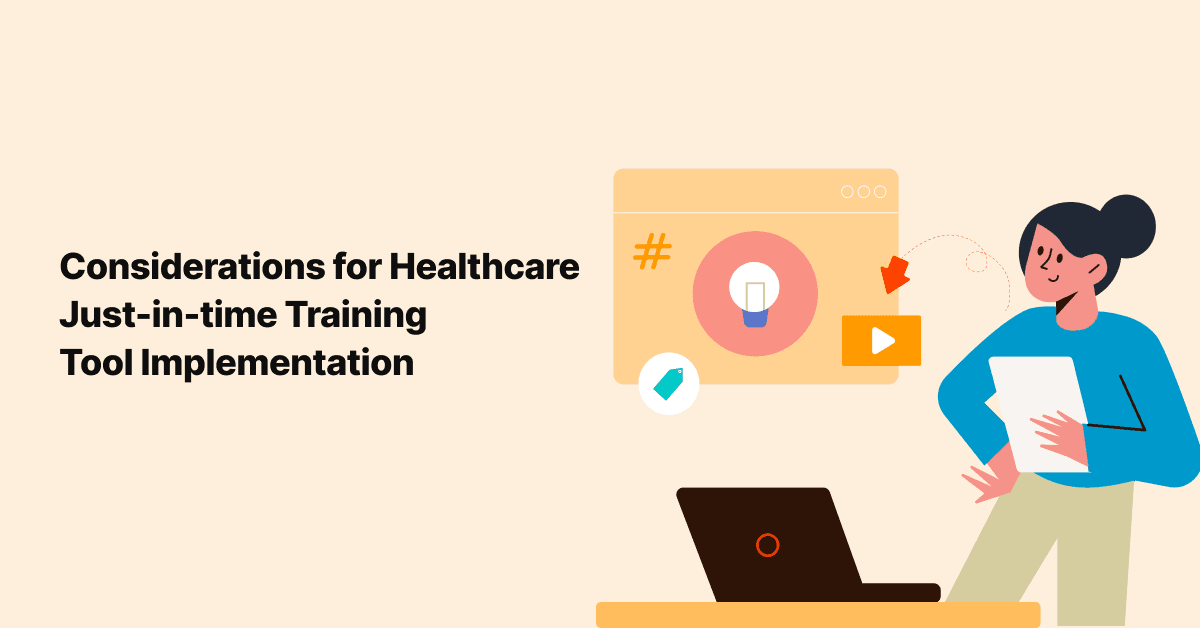
5 Things to Ensure When Training Users on a New EHR
The shift from paper medical records to the electronic version of storing patient health data hasn’t been as …

It’s safe to say that the preferred method of Epic Go-live support as At-the-elbow (ATE) assistance for clinicians is not going to be common practice right now. Nevertheless, existing Epic implementation efforts will need to continue where possible, albeit in a modified manner. Given the current strain on healthcare providers and administrators as they deal with COVID-19, some hospitals may opt to delay healthcare IT initiatives, while others may find themselves needing the anticipated improvements and optimizations more than ever. For health systems falling in the latter camp, we’ll share a few modifications that can be expected for EHR Go-live support that honors social distancing best practices.
We’re all aware of the circumstances under which many doctors and nurses are working to feverishly fight Coronavirus from the front lines. But to be fair, unless we’ve been in an impacted health facility, we can probably only start to understand the gravity of the situation. Given the scarcity of PPE and resources to support healthcare staff, it would be unwise to put Epic trainers and ATE support teams in a setting to warrant desperately needed protective gear. While physical, on-site assistance may very well be the most effective way to be there for Epic end users during Go-live, it doesn’t have to be on the floor (as may usually be the case).
Much as setting up a “War Room” for EHR Go-live efforts can be beneficial for assembling all the right people in one place — from developers and project managers to trainers and hospital IT resources — so too can a launch room type arrangement make for a place to go when help is needed without disrupting the busy, hazardous conditions where patients are being admitted and treated.
For heavily impacted hospitals, even a separate location on premise for the Epic Go-live team may very well be too close for comfort for everyone involved. In such cases, utilizing technology to connect clinical end users to virtual support for resolving issues or reviewing new workflows may best serve everyone involved.
Virtual training provides remote capabilities and solutions that are increasingly important. The primary strength of virtual training is that students are not restricted to a single location. Improvements in internet speeds and in the tools themselves over the last few years make virtual training a reliable training method with a strong future.
Setting up open lines of communication where physicians and ancillary staff can jump in as needed will allow for minimal disruption while still supporting roll-out efforts as planned. Providers can even do this right from the point-of-care, though patient security and consent should be taken into consideration if any video mediums are to be used for EHR support.
Much as it is foolish to expect working parents to do a stellar job homeschooling their children for the first time during the COVID-19 crisis, it’s also unreasonable to expect that heavily burdened medical professionals are going to take to new technology right now easily or smoothly. However, that doesn’t mean that all efforts should be called off, especially when the anticipated benefits of Epic implementation or EHR upgrades justify the work.
The best approach here is to honor the slow and steady method and to realize that some progress is better than no progress at all. We are in unprecedented times, and the stress for these end users is unimaginable. It goes a long way to remember that we’re dealing with people, and the more we can sympathize with priorities and make new workflows or functionality as simple as possible, the better chances we can drive Epic adoption and get the job done.
Join over 3,200 subscribers and keep up-to-date with the latest innovations & best practices in Healthcare IT.

The shift from paper medical records to the electronic version of storing patient health data hasn’t been as …

The use of software in healthcare has become all the more prominent with COVID-19. In fact, health information …

I’m sure you've invested considerable resources into training your EHR users.
Yet, here's a startling fact: …